1. Admission Requirements:
- Different universities may have varying admission criteria.
- Prepare academic transcripts, recommendation letters, and a personal statement.
- Some programs may require additional entrance exams.
2. Language Proficiency Tests:
- The Test of Proficiency in Korean (TOPIK) is commonly required.
- Some programs may accept English proficiency tests like TOEFL or IELTS.
3. Types of Student Visas:
- The D-2 visa is for regular students, while the D-4 visa is for language course students.
- Obtain the correct visa type based on your program.
4. Financial Proof:
- Provide evidence of financial ability to cover tuition and living expenses.
- Some universities may have specific financial requirements.
5. Tuition and Scholarships:
- Tuition fees vary by program and university.
- Explore scholarship opportunities for international students.
6. Accommodation:
- Universities often offer on-campus dormitories.
- Alternatively, students can find private accommodations off-campus.
7. Health Examination:
- Undergo a health examination in your home country or upon arrival in South Korea.
8. Residence Registration:
- Register your residence within 90 days of arrival at the local district office.
9. Banking:
- Open a local bank account for easy financial transactions.
10. Part-Time Work: – International students are allowed to work part-time during the semester (restrictions apply). – Full-time work is permitted during semester breaks.
11. Cultural Adjustment: – Attend cultural orientation sessions provided by the university. – Engage in student clubs and activities for a smoother transition.
12. Language Support: – Universities often offer language support programs for international students.
13. Post-Graduation Options: – Explore post-graduation options like finding employment or pursuing further studies.
14. COVID-19 Considerations: – Stay informed about any COVID-19-related regulations or guidelines for international students.
Remember to check with your chosen university and the South Korean embassy for the most up-to-date and accurate information tailored to your specific situation.
DISCLAIMER
This publication is provided for general information only and is not intended to cover all aspects of the topics discussed. The information contained in this publication does not constitute legal, tax or other professional advice of this website or its affiliates. Previous results do not guarantee a similar result. We make no representations, warranties or guarantees, express or implied that the contents of the publication are accurate, complete or current. Schoolingvisa.com is a service that facilitates a student’s process of acquiring a study visa by being a partner of other visa and immigration service companies. We offer consultancy services on student visas and any other visa, immigration options, but we do not directly provide any visas. We are not part of any government or immigration department. We do not provide any type of professional immigration, regardless of the destination.
Note: The information provided in this article is general, subject to frequent change and does not constitute any legal advice. For any specific study visa and legal advice you can rely on, please contact the consultants/advisors, lawyers and members of our expert team.


